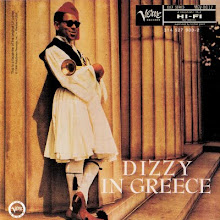
The Sidewinder, Lee Morgan’s 24-bar blues with an infectious bass line and backbeat, instantly became one of the most popular pieces in modern jazz history. Every track on this classic album is a gem.
The Philadelphia-born trumpeter and superb bop stylist Lee Morgan apprenticed with Dizzy Gillespie and Art Blakey before emerging as a leader in his own right in the early ‘’60s for Blue Note Records. Although Morgan owed a stylistic debt to both Gillespie and Clifford Brown, he quickly developed a voice of his own that combined half-valve effects, Latin inflections, and full, fluid melodies. While many of Morgan’s later sessions for Blue Note would find him paired with saxophonist Hank Mobley, The Sidewinder features then up-and-coming tenor player Joe Henderson, plus Detroit pianist Barry Harris, bassist Bob Cranshaw, and drummer Billy Higgins. Along with the title track, an unconventional 24-bar blues, the album’’s compositional standout is “Totem Pole,” a minor Latin groove featuring an outstanding solo by Henderson. This is the kind of relaxed blowing date, invigorated by thoughtful performances, that forms the backbone of the Blue Note catalog. --Fred Goodman
Tracklist:
1 The Sidewinder
2 Totem Pole
3 Gary’s Notebook
4 Boy, What a Night
5 Hocus Pocus
6 Totem Pole [alternate take]
pw: itsartolie
N.B.: Material posted on this site is for information purposes only. You must delete it after listening and/or viewing and buy the original CDs.















